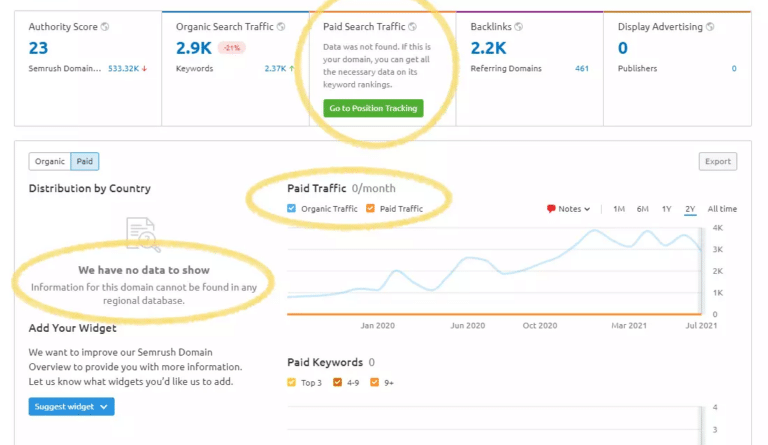
When it comes to online advertising campaigns, selecting the right platforms can make all the difference in reaching your target audience effectively. With an overwhelming number of options available, it can be daunting to determine which platforms will yield the best results for your specific campaign goals. Fear not, as this article will guide you through the process of selecting the perfect platforms for your online advertising campaigns, ensuring optimal reach and engagement with your desired audience.

Defining Advertising Campaign Goals
Identify overall campaign objective
Before embarking on an online advertising campaign, it is crucial to clearly define your overall objective. What do you hope to achieve through your advertising efforts? Whether it’s increasing brand awareness, driving website traffic, generating leads, or boosting sales, having a specific objective in mind will guide your decision-making process and help you measure the success of your campaign.
Determine specific goals
Once you have established your overall campaign objective, it’s time to break it down into specific goals. For example, if your objective is to increase sales, your specific goals could include achieving a certain percentage increase in revenue, acquiring a specific number of new customers, or improving the conversion rate on your website. Defining these specific goals will give you a clear direction and allow you to better evaluate the effectiveness of different advertising platforms.
Consider target audience
A crucial aspect of any successful advertising campaign is understanding your target audience. Take the time to research and identify the characteristics, preferences, and behaviors of your ideal customers. By knowing who you are trying to reach, you can tailor your advertising efforts to resonate with them. Consider factors such as age, gender, location, interests, and online behaviors when evaluating various advertising platforms.
Evaluating Advertising Platforms
Consider platform reach and audience demographics
When evaluating advertising platforms, it’s important to consider their reach and the demographics of their audience. Look for platforms that have a large user base that aligns with your target audience. Pay attention to the platform’s demographics data to ensure it matches the profile of your ideal customers. A platform with a wider reach and an audience that closely matches your target demographics will increase the likelihood of reaching your intended audience effectively.
Assess pricing and budget options
Advertising platforms offer a variety of pricing and budget options. It’s essential to assess these options to ensure they align with your campaign goals and budget constraints. Some platforms may require a minimum ad spend, while others offer flexible budgeting options. Take the time to compare pricing structures and evaluate how much you’re willing to invest in your campaign.
Analyze platform features and ad formats
Each advertising platform has its own set of features and ad formats that can enhance the effectiveness of your campaigns. Consider platforms that offer features such as ad targeting options, retargeting capabilities, or advanced reporting and analytics tools. Additionally, think about the ad formats available and how well they align with your campaign objectives. Whether it’s video ads, display ads, or native ads, choose a platform that offers formats that suit your messaging and creative requirements.
Understanding Target Audience
Conduct market research
To effectively reach and engage your target audience, conducting market research is essential. Utilize surveys, focus groups, or online tools to gather insights about your potential customers. Understand their needs, pain points, and motivations. This information will help you tailor your advertising messages and choose platforms that align with your audience’s preferences and behaviors.
Identify audience behavior and preferences
In addition to understanding your target audience’s characteristics, it’s crucial to delve into their online behavior and preferences. Research the platforms they frequent, the content formats they prefer, and the devices they use. Are they more active on social media platforms like Facebook or Instagram? Do they consume more video content on YouTube or TikTok? By identifying their behavior and preferences, you can choose platforms that will effectively resonate with them.
Consider platform usage and popularity
When deciding on advertising platforms, consider their usage and popularity among your target audience. Look for platforms that are widely used by your audience for their day-to-day activities. Whether it’s browsing social media, watching videos, or conducting online searches, choose platforms that your target audience is already engaged with. This way, you can ensure your advertising efforts are being seen by the right people in the right place.
Analyzing Competition
Research competitors’ advertising strategies
Analyzing your competitors’ advertising strategies can provide valuable insights and help you make informed decisions about your own campaigns. Research the platforms they are using, the messaging they employ, and the creative elements they emphasize. By studying their approach, you can identify areas of opportunity and differentiate your own campaign from the competition.
Identify successful platforms used by competitors
Pay close attention to the platforms your competitors are using and determine if they are experiencing success on those platforms. Look for signs of engagement, such as likes, comments, or shares. This information can give you valuable insights into which platforms are resonating with your target audience and can serve as a starting point for your own platform selection.
Differentiate your campaign from competitors
While researching your competitors is important, it is equally critical to differentiate your own campaign from the competition. Identify what unique value proposition or messaging you can offer to stand out. Consider different platforms that may not be heavily utilized by your competitors but align with your target audience. By positioning your campaign in a way that sets it apart, you can ensure your message cuts through the noise and captures audience attention.

Determining Advertising Platform Fit
Assess platform compatibility with campaign goals
When choosing an advertising platform, consider how well it aligns with your campaign goals. Evaluate whether the platform’s features and targeting options can help you achieve your desired outcomes. For example, if your goal is to drive website traffic, choose a platform that offers precise targeting capabilities and ad formats that can effectively direct users to your website.
Consider platform targeting options
Targeting options offered by advertising platforms play a significant role in reaching the right audience. Look for platforms that allow you to narrow down your targeting based on location, demographics, interests, or online behavior. The more precise your targeting options, the more likely you are to reach your intended audience.
Evaluate platform analytics and reporting capabilities
Understanding the performance of your advertising campaigns is crucial for making data-driven decisions. When evaluating platforms, consider the analytics and reporting capabilities they offer. Look for platforms that provide detailed data on impressions, clicks, conversions, and other key metrics. This information will allow you to track the effectiveness of your campaigns and make necessary optimizations along the way.
Testing and Measuring Results
Run small-scale tests on different platforms
Before fully committing to a specific platform, it’s advisable to run small-scale tests across different platforms. Create variations of your ads and assess their performance on different platforms. This approach will allow you to gather data and insights to make more informed decisions about where to allocate your advertising budget.
Analyze campaign performance metrics
Once you have conducted tests on multiple platforms, analyze the performance metrics of each campaign. Look at factors such as click-through rates, conversion rates, and return on investment (ROI). Compare the effectiveness of different platforms and identify which ones are delivering the best results for your specific goals.
Refine and optimize advertising strategy based on results
Based on the evaluation of campaign performance metrics, refine and optimize your advertising strategy. Make adjustments to your messaging, targeting, or creative elements based on the data and insights gathered. By iterating and fine-tuning your approach, you can continuously improve the effectiveness of your campaigns and maximize the return on your advertising investment.
Considering Budget Allocation
Evaluate cost per click (CPC) and cost per impression (CPM) on platforms
When considering budget allocation, it’s important to evaluate the cost per click (CPC) and cost per impression (CPM) on different platforms. Compare the costs of reaching your target audience on each platform and determine which options offer the best value for your budget. Keep in mind that different platforms may have varying pricing structures, so carefully assess the potential reach and impact of your budget allocation.
Allocate budget based on platform effectiveness
As you analyze the performance metrics and costs associated with each platform, allocate your budget based on their effectiveness. Identify the platforms that have consistently delivered positive results and allocate a larger portion of your budget to these platforms. However, it’s important to keep a diverse mix of platforms to maximize your reach and minimize risks associated with relying heavily on a single platform.
Consider long-term budget sustainability
While it may be tempting to exhaust your entire budget on high-performing platforms, it’s crucial to consider long-term budget sustainability. Evaluate the overall costs and returns of each platform and determine if they align with your long-term goals. It’s essential to strike a balance between investing in impactful advertising and ensuring your budget can be sustained over the duration of your campaign.
Leveraging Data and Analytics
Utilize platform data and audience insights
Advertising platforms offer valuable data and audience insights that should be leveraged to inform your decision-making. Use the data provided by each platform to understand the performance of your campaigns and to gain insights into your audience’s behavior and preferences. This data can help you refine your target audience, optimize your messaging, and make data-driven decisions for future campaigns.
Track and monitor campaign performance
Once your campaigns are live, it’s crucial to continuously track and monitor their performance. Keep a close eye on key metrics such as impressions, clicks, conversions, and engagement rates. Regularly review the data and identify any trends or opportunities for improvement. Tracking campaign performance in real-time allows you to make timely adjustments and optimize your advertising strategy.
Make data-driven decisions for future campaigns
The data and insights collected from your advertising campaigns should play a central role in shaping your future campaigns. Analyze the trends, patterns, and successes from previous campaigns to inform your strategy moving forward. By taking a data-driven approach, you can identify opportunities, refine your targeting, and develop more effective advertising campaigns over time.
Seeking Professional Advice
Consult with advertising agencies or professionals
If you feel overwhelmed or unsure about choosing the right platforms for your online advertising campaigns, consider consulting with advertising agencies or professionals. These experts have experience working across various platforms and can offer valuable insights and guidance based on your specific goals and target audience.
Engage with platform customer support
Advertising platforms often have customer support teams available to assist advertisers. Reach out to their customer support teams if you have any questions or need clarification on platform features, targeting options, or any aspect of your campaign. They can provide personalized assistance and help you make well-informed decisions.
Attend marketing webinars and conferences
Stay up to date with the latest trends and insights in the advertising industry by attending marketing webinars and conferences. These events are great opportunities to learn from industry experts, gain valuable knowledge, and network with like-minded professionals. By staying informed and connected, you can better navigate the ever-evolving landscape of online advertising.
Considering Brand Reputation
Research platforms’ credibility and trustworthiness
When selecting advertising platforms, it’s essential to research their credibility and trustworthiness. Look for platforms that have a good reputation and are known for their adherence to ethical advertising practices. Consider platforms that have been vetted by businesses similar to yours and have positive reviews and testimonials from other advertisers.
Evaluate brand safety features
Brand safety is a significant concern in the advertising industry. Evaluate the brand safety features offered by different platforms. Look for options that allow you to control where your ads are displayed and ensure they are not associated with inappropriate or harmful content. Protecting your brand’s reputation and image should be a priority when choosing advertising platforms.
Consider brand positioning on platforms
Carefully consider the positioning of your brand on different platforms. Evaluate the overall user experience, the quality of content, and the alignment with your brand’s values and image. Choose platforms that resonate with your target audience and provide an environment that complements your brand’s messaging and positioning. Aligning your brand with reputable platforms will enhance trust and credibility with your audience.
In conclusion, choosing the right platforms for online advertising campaigns requires a thoughtful and strategic approach. By defining your campaign goals, understanding your target audience, analyzing competition, and considering various factors such as platform reach, pricing, and analytics capabilities, you can make informed decisions and maximize the effectiveness of your advertising efforts. Regularly track and measure the results, optimize your campaigns based on data and insights, and consider seeking professional advice when needed. By following these steps and considerations, you can create successful online advertising campaigns that drive meaningful results for your business.
